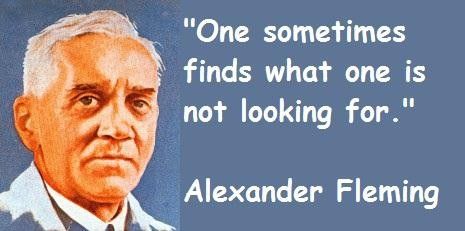I am trying to remember where I read a quote to the effect that the discovery of penicillin saved more lives than Jesus did. Even if we add up all the cures in all the Gospels (accepting them as literally factual historical accounts for this purpose), and multiply them by a thousand or ten thousand in keeping with the ending of the Gospel of John, which says that all the books might struggle to contain the many works that Jesus did, the 300 million lives saved by penicillin – to say nothing of other antibiotics whose discovery was made possible by the pioneering discovery of penicillin – would still exceed that.
This could lead one in any number of directions. In relation to the idea that Jesus was a divine omniscient person, it would raise the question of whether Jesus knew about penicillin – but told no one of its lifesaving potential. And in relation to the problem of evil and miracles, one might ask why God would not have sent knowledge of penicillin into the world along with Jesus, rather than making healing in that time (according to the stories in the Gospels) depend on a touch, a word, or a decision by Jesus and his followers.
One should not shirk away from such difficult questions. Indeed, if your theology is such that it makes you unwilling to engage with such difficult questions, because you fear that your worldview might collapse if you think about it too much, then your theology ought to be discarded right away. Something so weak that it cannot bear this rather obvious line of inquiry will not serve you well in the future and isn’t serving you well now.
But I think that it is also worth considering another aspect of this, which I left hidden behind the title of the blog post. How can the matter be “Jesus vs. Alexander Fleming” when Fleming was himself a devout Roman Catholic?
The problem of evil is a serious one, but it is based on the assumption that there is a better way to make a world than one which is dynamic, as ours is. A healthy planet, of the only sort that we know can give rise to living things, has shifting plates, tumultuous weather, and of course a diverse biosphere filled with fungi and bacteria – things that harm other living things. Humans have sometimes imagined that a simpler world in which nothing grows or changes, nothing develops or threatens, would be preferable. But few of us would actually want to live there.
And so we inhabit a world of health and disease, and within that world, people of faith and people without religious convictions share in the suffering, and in contributing to the easing of suffering in various ways. The claim that religion and science are at odds with one another is an ideological one, adopted at times by fringes at the far extremes. It is not based on observation and evidence, but on the conviction either that God being who God is, or the world being what it is, the realities of suffering and processes like evolution ought not to be embraced as compatible with religion. Or it is based on the assumption that Jesus was a divine figure striding about the earth who knew about penicillin and could have told his contemporaries has he wanted to.
But those who are determined to weigh their ideas over against evidence will find that, whatever one thinks of the miracle stories, there is reason to think that Jesus at least did what other faith healers have done and sought to relieve suffering where he could, in the absence of advanced medicine. And they will find that Alexander Fleming was devoutly religious and contributed a major advance to out understanding of microorganisms and of medicine, in a manner that continues to save lives today.














